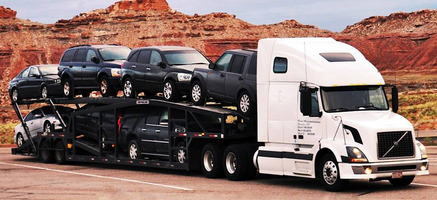Are you planning a road trip across state lines? Or maybe you’ve recently moved to a different state and need to get your car inspected. Whatever the reason, if you’re wondering whether it’s possible to have your car inspected in a different state, we’ve got all the answers for you! In this blog post, we’ll explore the ins and outs of getting your car inspected outside of your home state. So buckle up and let’s dive into the world of car inspections!
What is a car inspection?
A car inspection is a thorough examination of your vehicle’s safety and emissions systems. It’s designed to ensure that your car meets the required standards set by the state or country you’re in. The specific requirements for a car inspection can vary from one state to another, so it’s important to familiarize yourself with the regulations of the state where you plan on getting your car inspected.
During a typical car inspection, a certified technician will inspect various components of your vehicle such as brakes, lights, tires, exhaust system, and more. They’ll check for any signs of wear and tear or potential safety hazards that could compromise the performance and integrity of your vehicle.
In addition to assessing safety features, some states also require emissions testing as part of the inspection process. This involves checking if your vehicle meets certain emission standards aimed at reducing air pollution caused by vehicles.
Car inspections are typically conducted at authorized inspection stations or affiliated auto repair shops. Once your vehicle passes all necessary inspections, you’ll receive a certification sticker indicating that it has successfully met all requirements.
Now that we have an understanding of what exactly a car inspection entails let’s explore how they work in practice!
How car inspections work
Car inspections are an important part of vehicle maintenance. They ensure that your car meets the necessary safety and environmental standards set by the state or country you’re in. But have you ever wondered how exactly car inspections work? Let’s take a closer look!
First, it’s essential to understand that car inspection requirements can vary from one state to another. In some states, inspections are mandatory annually or biennially, while in others they may only be required when buying or selling a vehicle.
During a car inspection, a certified inspector will thoroughly examine various components of your vehicle to ensure they meet the specified criteria. This includes checking the brakes, tires, lights, emissions system, steering, and suspension systems, among other things.
The inspector will use specialized equipment and techniques to evaluate each aspect of your vehicle carefully. If any issues or defects are found during the inspection process, they will be noted on an official report.
Once the inspection is complete and your vehicle passes all requirements, you’ll receive a certification sticker indicating that your car has successfully passed its inspection. This sticker is usually placed on your windshield as proof that your vehicle is compliant with local regulations.
Remember that failing an inspection doesn’t necessarily mean there’s something seriously wrong with your car; it simply means certain standards haven’t been met yet. In such cases, needed repairs or adjustments must be made before attempting another inspection.
Understanding how car inspections work can help you stay proactive about maintaining roadworthy vehicles while ensuring everyone’s safety on our roads! So keep up with regular inspections based on local requirements for peace of mind behind the wheel!
When is the best time to have a car inspection?
Now that you know what a car inspection is and how it works, you might be wondering when the best time is to have your car inspected. Well, there isn’t a one-size-fits-all answer to this question as it can vary depending on several factors.
One important factor to consider is the requirements of the state where your vehicle is registered. Some states require annual inspections, while others may only require inspections every few years. It’s crucial to familiarize yourself with the specific regulations in your state so that you can stay compliant and avoid any penalties.
Another factor to consider is your own personal preference for peace of mind. If you want to ensure that your vehicle is in good working condition and want an expert opinion on its safety, then getting it inspected regularly would be a wise choice. This can help identify any potential issues early on and prevent costly repairs down the road.
Additionally, if you’re planning to sell or transfer ownership of your vehicle, having a recent inspection report can add value and give potential buyers confidence in their purchase.
If you’re planning a long-distance road trip or moving to another state where different inspection requirements apply, it’s advisable to get your car inspected beforehand. This will save you from any last-minute surprises or inconveniences during your journey or after relocating.
In conclusion, while each situation may differ, keeping up with regular car inspections not only ensures compliance with state regulations but also promotes safety on the roads for both yourself and others. So don’t hesitate – take proactive steps towards maintaining the health of your vehicle by scheduling timely inspections!
Remember: always prioritize safety by having regular maintenance checks regardless of whether they are required by law or not!
Pros:
– Allows for flexibility in scheduling an inspection, as inspections can be conducted in a different state than where the car is registered.
– Allowing inspections in different states can reduce the time it takes for someone to get the car inspected.
– May be more convenient for customers who are unable to travel to their home state for an inspection.
Cons:
– May require customers to pay additional fees for inspections in a different state.
– May lead to confusion about which inspection rules and regulations apply in the different state.
– Depending on the state laws, it may not be possible to get your car inspected in a different state.
FAQs:
1. Can I get my car inspected in a different state?
Yes, you can get your car inspected in a different state as long as it meets the requirements of the state’s vehicle inspection laws.
2. What documents do I need to bring with me to get my car inspected in a different state?
You will need to bring your car’s registration and proof of ownership to the inspection station. In some cases, you may also need to provide proof of insurance.
3. How much does it cost to get my car inspected in a different state?
The cost of an out-of-state vehicle inspection varies depending on the state that you are having it done in. Generally, it is more expensive than an in-state inspection.
4. How long does it take to get my car inspected in a different state?
It typically takes about 30 minutes to complete an out-of-state vehicle inspection.
5. Are there any special requirements for getting my car inspected in a different state?
Yes, some states have specific requirements for out-of-state inspections. Be sure to check with the local DMV or inspection station beforehand to make sure you meet all of the necessary requirements.
Features:
1. Ability to have your car inspected in a different state: Many states require cars to be inspected annually. This service allows you to have your car inspected in a different state, ensuring that your vehicle meets the necessary safety standards.
2. Convenience: You don’t have to worry about traveling to a different state to have your car inspected. You can have your car inspected in the comfort of your own home.
3. Cost Savings: You can save money by having your car inspected in a different state. This is because some states may have lower inspection costs than your own state.
4. Quality Service: You can be sure that your car will be inspected by a certified technician who knows the necessary safety and emissions standards for your particular vehicle.
5. Time Savings: You won’t have to worry about scheduling an appointment or waiting in line at a local inspection station. You can have your car inspected quickly and conveniently without any hassle.

